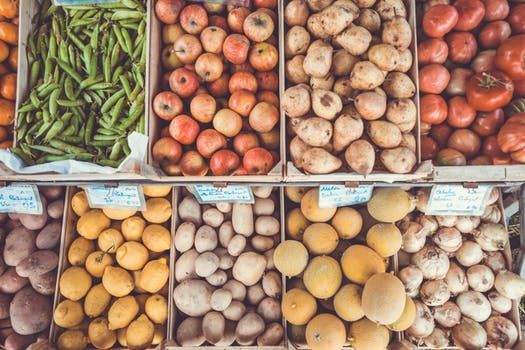
6 *More* Tips to Eat Well on a Budget
Wow! Thanks for the lovely feedback on my first 7 Tips to Eat Well on Budget! Since you loved it so much, I’ve put together another 6 Tips. Enjoy!
1. Be a Bargain Hunter
When your favourite products are on sale, stock up. With veggies, if you don’t think you’ll use before it goes rotten, chop it up, par-cook and freeze. Then you always have a great stash of veggie goodness to add to slow-cooker meals, smoothies, stews, casseroles and stir-fries. Another thing I like to do is cook up a big batch of food, then freeze in smaller portions so you can just pull a meal portion out of the freezer when you know you won’t have time to cook. This means you’ll be filling up on a nourishing meal and won’t be tempted to order take out. (TIP: During the peak of the tomato season, we buy up big and make many, many bottles of passata.)
2. Try Different Cuts of Meat
I love using the slower cooker for cheaper cuts of meat. The price doesn’t reflect on the quality, it just means you need to cook it differently. Add your meat to the slow cooker, with veggies, herbs and spices before you leave the house in the morning. You’ll come home to the house smelling amazing and dinner ready to be served. (TIP: If you don’t have time in the morning to get your slow cooker meal ready, prep everything the night before while cooking dinner. Put your slow cooker in the fridge, pull out first thing in the morning (allowing it to come towards room temperature), then turn it on just as you leave the house. *WARNING: DO NOT turn on straight from the fridge as this may cause it to crack.)
3. Shop at the Farmers Market
Similar to eating within season, buying from farmers markets cuts out the middleman, saving you a ton of money. Plus you get to meet the people behind the scene that work hard to bring you quality produce.
4. Buy in Bulk
Get your quinoa, oats, brown rice, brown pasta and other grains in bulk. Always stop and look at the unit price of food. Generally speaking the bigger packages will save you money in the long run. These foods are great sources of whole grains, which mean it’s more nourishing and helps to bulk up meals. Note: it’s not saving money if you aren’t going to use the whole packet before it expires, so ask yourself will you use it all? Alternatively, shop at bulk food stores and get whatever amount suits your family and your budget; you may only want 200g of brown rice for instance.
5. Spices & Dressings
Spices literally spice up dishes turning them from a bland dish to an exotic dish. Dressings are so easy to make such as olive oil and lemon, olive oil and apple cider vinegar or tahini dressing.
6. Keep Track of Your Spending
Keep a diary for a week and write down every time you purchase food, drinks and takeout. You’ll be surprised by how much you spend on coffee, smoothies and a ‘quick-something-to-eat’. Work out what you can go without; do you really need that second or third cup of coffee? Can you make yourself a cup of tea instead? I often make smoothies the day before and pour into jars to keep fresh, or take a thermos of my favourite tea to work to enjoy.
Disclaimer: This article is written for information purposes only. Information included in this article is not intended to treat or cure individuals. As every individual is so unique, so too are their dietary needs and restrictions. Always seek the advice from a healthcare professional before making any changes to your lifestyle or diet.

